#savethearts: Five industry-leading creatives on why the arts matter
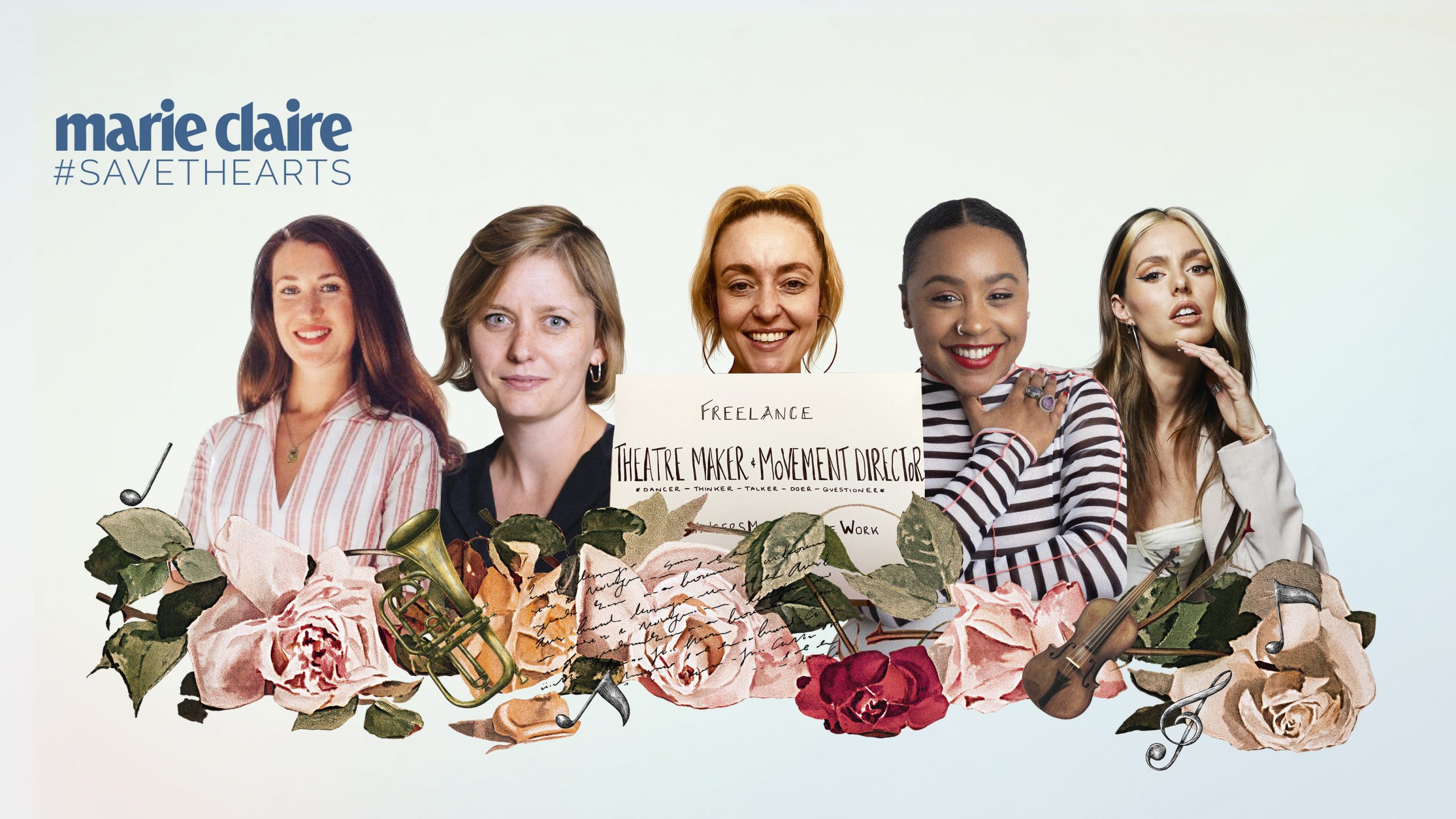

Marie Claire caught up with five of the nation's leading creatives to talk lockdown lessons, the future of theatre and banding together to #savethearts
The pandemic has had a devastating impact on those whose incomes relied on live performance – from theatre workers on precarious zero-hours contracts, to freelance musicians, playwrights, performers and many more whose jobs are behind the scenes keeping the industry alive. It's also had a devastating impact on those of us who looked to the arts as a refuge in difficult times. Which is why Marie Claire launched #savethearts: a campaign bringing together some of the nation's brightest creative voices to share their stories.
#savethearts: Five industry-leading creative voices speak out about why the arts matter
'We are resilient, capable and essential'
Award-winning theatre director, Ola Ince, is totally over being a zombie to endless Zoom calls and reveals why reflection and recovery are key to emotional wellbeing
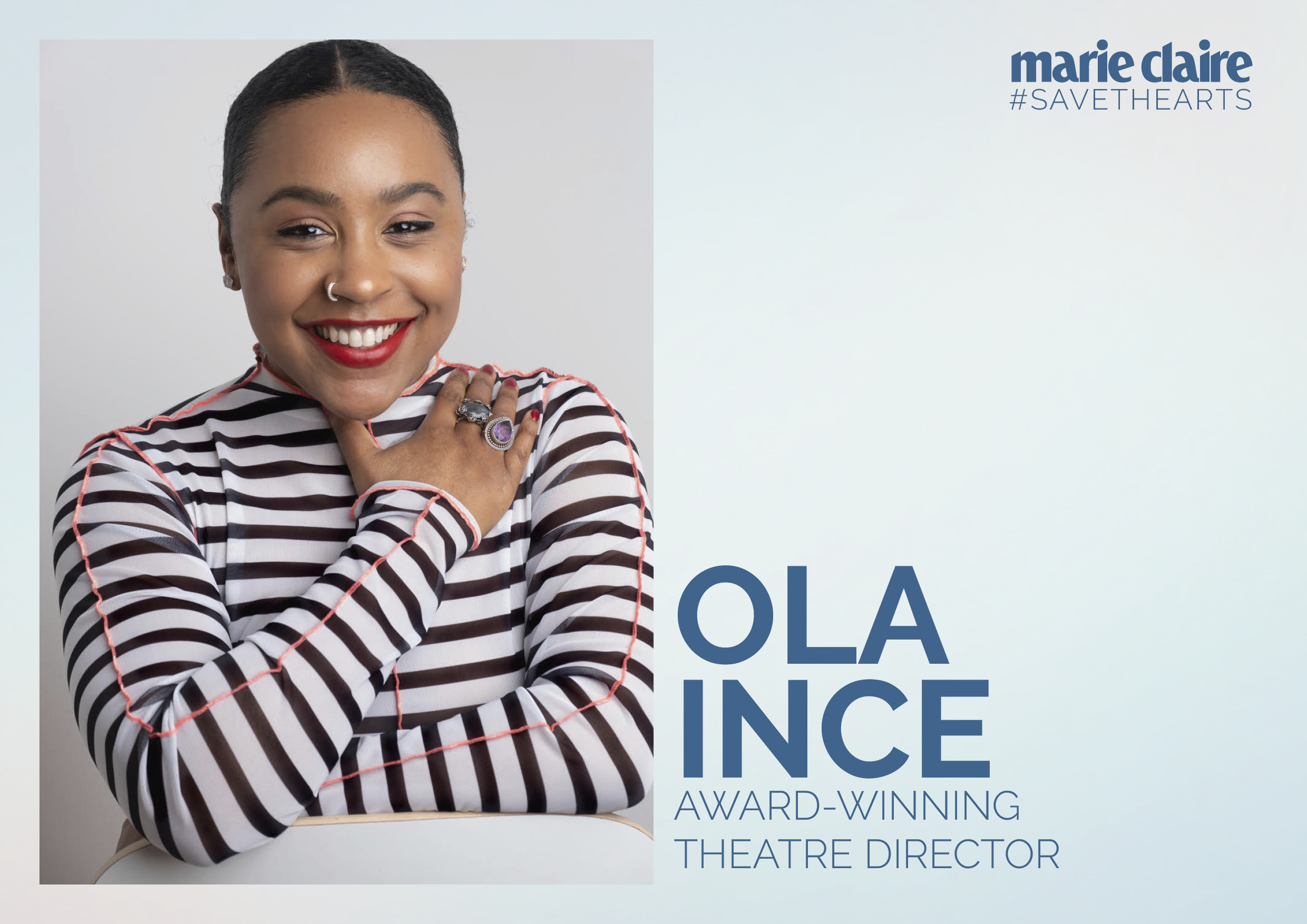
Navigating 2020 has been a corona-coaster. Initially, I was relieved I had the opportunity to slow down (I was juggling multiple international jobs), reflect (I had the opportunity to reconsider my work/life balance) and recover (I was constantly under the weather due to lack of rest, lots of stress and a poor diet). But this relief was followed by heartache. I deeply missed the act of collaboration. So, I was extremely grateful to be offered work. And it was a huge privilege to work with so many amazing freelance artists for screen, radio, online, opera and theatre again.
Unfortunately this elation was followed by fatigue and boredom. I became a zombie to endless Zoom calls, I lost all sense of time and purpose and could no longer imagine a future for theatre.
The lack of theatre and live arts shrunk my universe. It's made me feel hopeless, it's made me more insular and therefore less empathetic, and it's vaporised my imagination. I reckon a lot of people can relate to my experience.
I also became exhausted by the government's lack of compassion, recognition and support for artists. A brilliant writer friend of mine, Matilda Ibini, recently said the government's lack of imagination is literally killing people. Their inability to imagine what it might be like to be poor, hungry, and marginalised means they're unable to provide for people who are.
Marie Claire Newsletter
Celebrity news, beauty, fashion advice, and fascinating features, delivered straight to your inbox!
I'm starting to feel hopeful again, as the year comes to a close. I'm mentoring emerging actor and directors and I’m certain the world needs art to heal. There are an army of artists ready to go to battle. We are resilient, we are capable and we are essential!
'Supporting our creative community is my number one objective'
Joanna Payne, founder of Marguerite, a club and network for women working in art, design, fashion and photography, explains how she's coped in 2020 and plans for next year
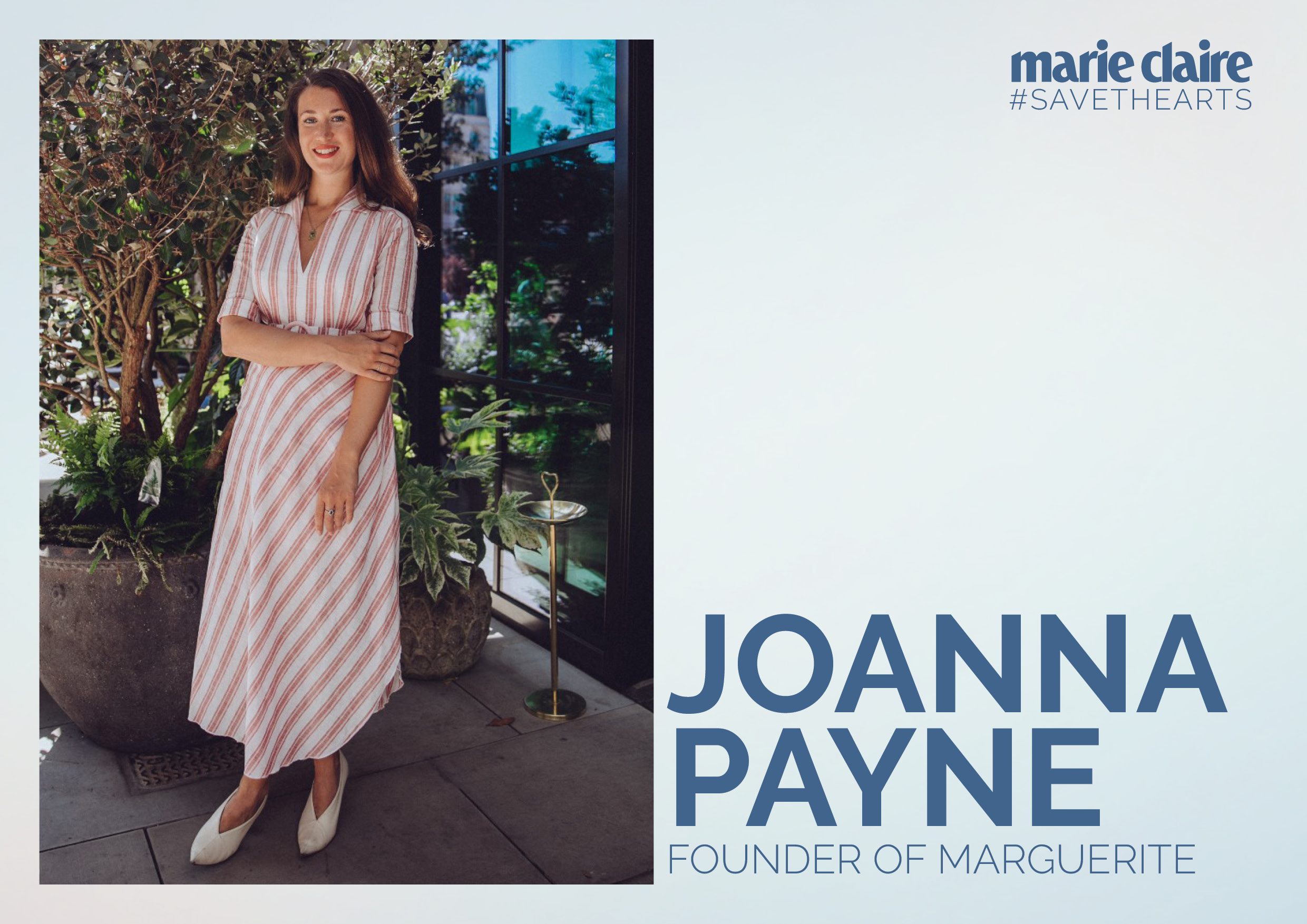
As an events company this has been a very difficult year. We’ve turned our attention to online talks but the overall experience and thus the amount of money Marguerite can make just doesn’t compare. Up until this year, I’d been a bit of a technophobe so am trying to see the positives in 2020 forcing me to learn some new skills.
The week before the first lockdown in March, we saw many creative freelancers in our network began to lose all of their work. In response to this, we launched ‘Freelancers Unite’ which was a forum pairing available freelancers with companies offering paid work. Providing support to our creative community throughout the course of the pandemic has been our number one objective.
More recently, we hosted ‘The Marguerite School for Start Ups’ - a programme for anyone looking to start a company after losing their job or for whom 2020 has made them reconsider their life decisions. This December we launched 'Marguerite Meets’. The art world is historically white male dominated so we spoke to the people from BAME backgrounds who are changing that.
I thrive off the buzz of bringing people together, so the loss of live events took a real toll on my mental wellbeing around September time. I think we all thought that by that point, we’d be in a position to start coming together again but in fact, things got far worse. There now seems to be light at the end of the tunnel what with the arrival of the vaccine, which has improved my emotional state no end.
Of course I understand the government is not able to save every job. But more should have been done to financially support those who work in the arts. According to Art Review, as many as 80% of those working in the arts and the wider creative industries are self-employed, so many of them fell through the gaps after applying for support. The events industry we sit in is one of the ‘forgotten’ industries that has received no funding whatsoever.
* The Marguerite School for Start Ups and Marguerite Meets are available online at Marguerite London
'Everyone's lifting each other up, there's no competing with one another'
Singer/songwriter Call Me Loop (aka Georgia Buchanan) was all set for a smash-hit year, so how has she kept her music career dreams alive?
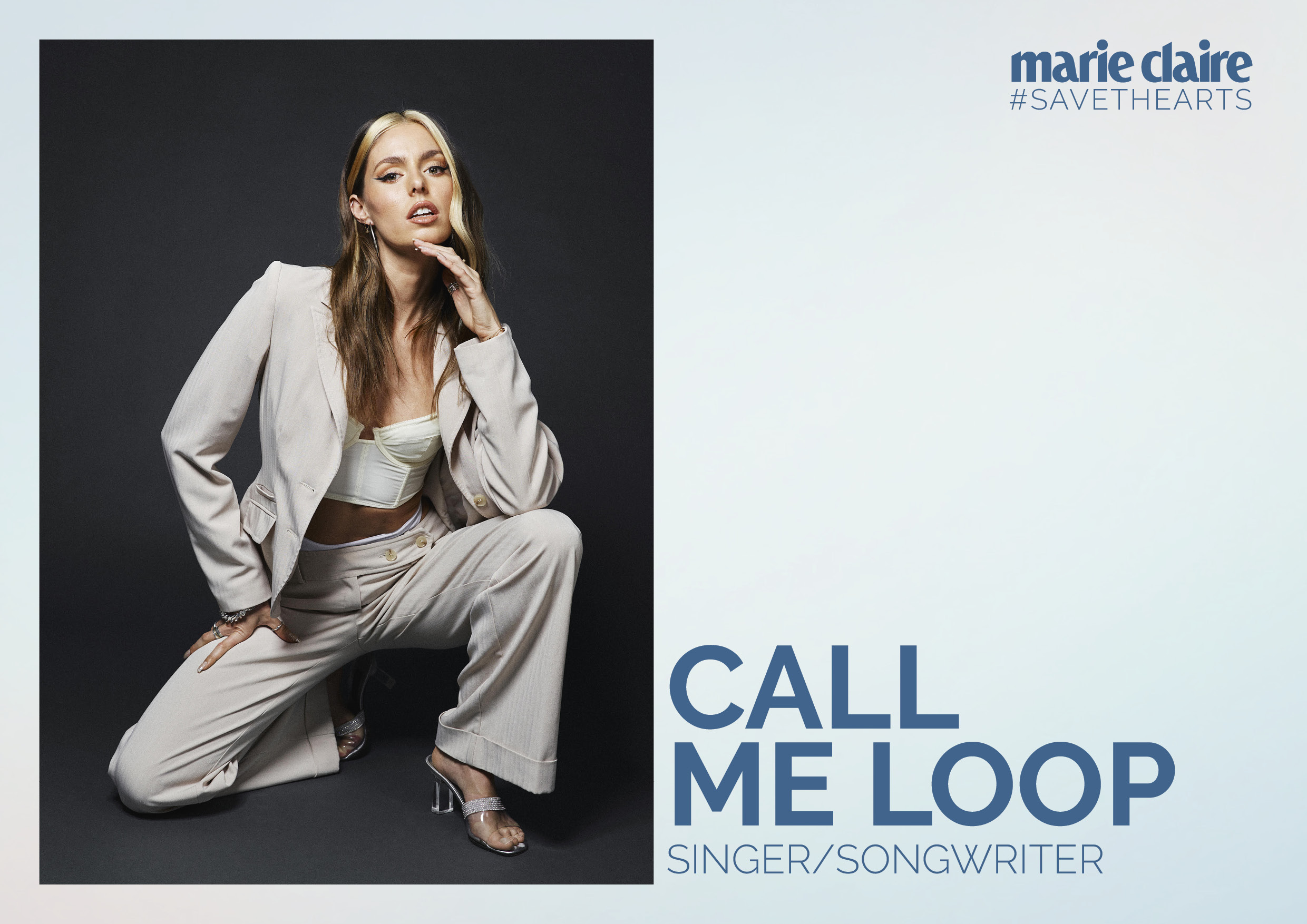
As a performer and a huge fan of live music, it's heartbreaking to see the industry on its knees. I miss being with my band and I miss going to support my peers at their gigs. It's gut-wrenchingly sad that the industry was given so little support from the government. So many venues closed down and so many people's careers (namely the people 'behind the scenes' such as small venue owners, engineers, crew, agents, etc) vanished within a matter of months. It's also genuinely very worrying to think about the long-term repercussions.
Live music industry contributed £4.6 billion to the UK's economy last year. Yet it had to take Let Music Live social media movement to make the government realise they should be re-injecting some of that back into the arts in order to allow us to merely survive.
I've tried not getting too overwhelmed by things outside of my control. It's not always been easy, and this year has been one of the hardest of my life. I'm praying the vaccine gets rolled out as soon as possible, and in turn means us artists can get back out there doing gigs, tours and festivals.
I always love to support my industry mates and their work. Everyone loves to lift each other up and help each other out, rather than compete with one another, and it's so wonderful to see. I did a couple of Instagram 'Liveathons' in the first lockdown, where I went live for 12 hours with 12 different artists/DJs back to back for chats, live performances, games etc. The first I hosted on my own Insta page. it was just such a fun way to collaborate and engage with each other.
* Call Me Loop's new single Rosé is out now. Georgia is an active #letthemusicplay campaigner and hosted a series of ‘lockdown liveathons’ on Instagram featuring Gracey, Mae Muller, Ellie Goulding and Ella Eyre among other female musicians.
'I'm emotionally numb and working on autopilot'
Emma Jayne Park is a choreographer, dancer and theatre maker and associate artist with the Scottish Mental Health Arts Festival
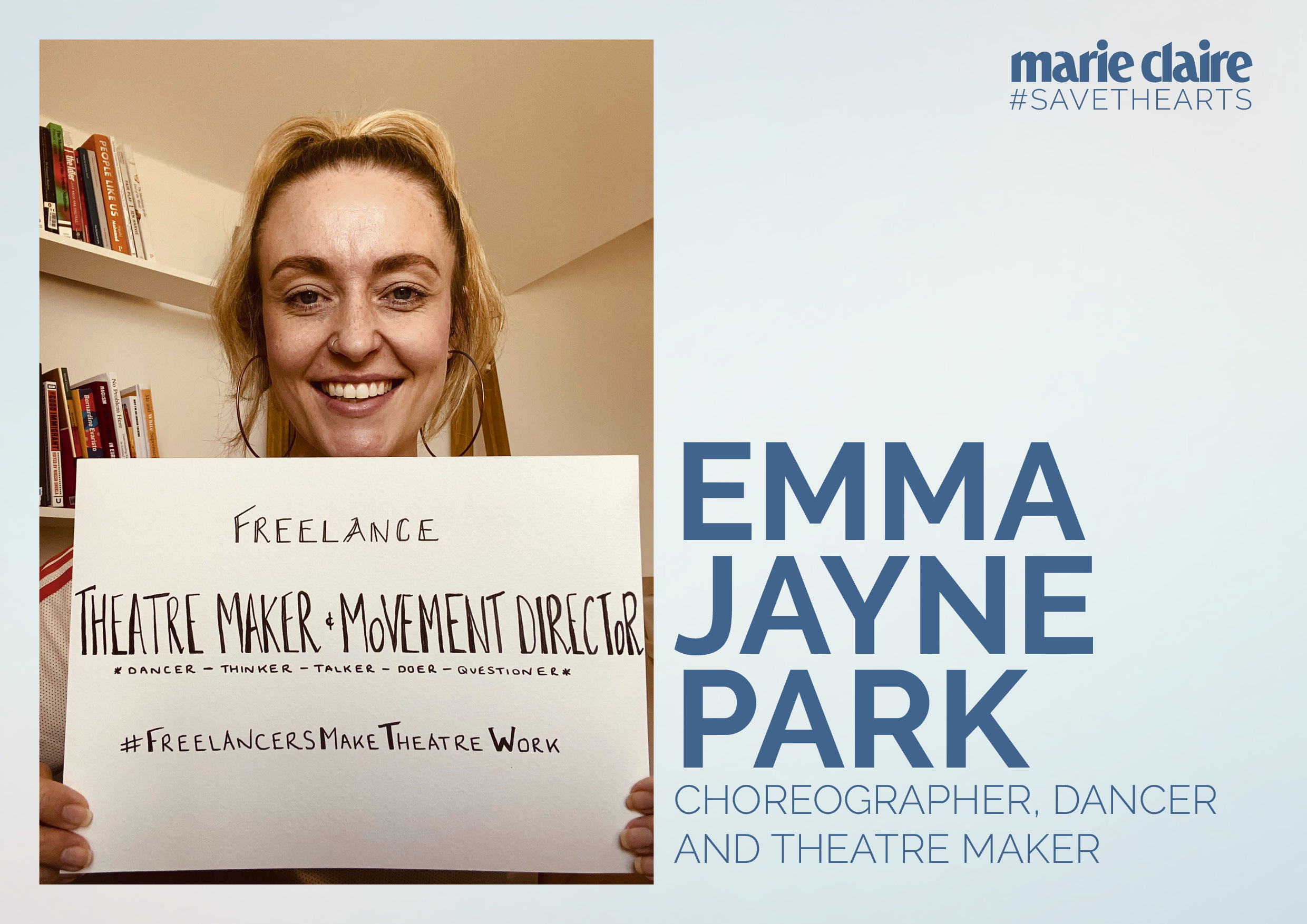
On a day-to-day basis I haven’t stopped, but paid work has reduced massively and my creative work is virtually non-existent. On the other hand, I am an independent artist who drives my own creative projects which results in employing freelancers, and recently began developing a touring network for dance in my home region of Dumfries and Galloway.
I was a member of the Freelance Task Force, sponsored by National Theatre Scotland. For me, 2020 has really highlighted the colossal amount of work that freelancers are expected to undertake and just how much responsibility lies with us, yet how much time we spend trying to source information or secure support to continue. One of the greatest outcomes of the FTF was connecting with Freelancers Make Theatre Work. They’re really brilliant and I’m proud to be part of the team, many of whom I would now consider friends.
I am working with the Scottish Mental Health Arts Festival to develop an artist’s network and through the project work I undertake (under the handle Cultured Mongrel alongside a team of three other brilliant freelancers) we have managed to pay artists to make some work, showcase existing work and to sit on curation panels.
My biggest personal plan for 2020 is a four day work week. I live with fibromyalgia [a condition that causes widespread pain and extreme tiredness] and an associated mental health condition. It is not unreasonable to imagine that the stress of working as a theatre maker during the austerity years has contributed to this, so if I am going to continue working – and I firmly believe the industry can only benefit from more disabled artists, practitioners and workers – I have to prioritise working in a healthy way. I am totally burnt out, and I don’t say that flippantly. I’m currently in the state of being emotionally numb and working on autopilot. Living like this is not a quality of life and for a country so hell bent on talking about being world leading it amazes me that quality of life is so rarely the focus of conversation. There is a fundamental misunderstanding about how publicly-subsidised theatre works and for all of the platitudes to mean anything the government needs to embrace models of subsidy, looking to countries like Finland and Germany who really are world leading in how they treat cultural workers.
'The exchange of telling and being told stories is ancient'
Rachel Bagshaw, theatre director and Associate at the Unicorn Theatre for young people, explains the importance of keeping the arts accessible
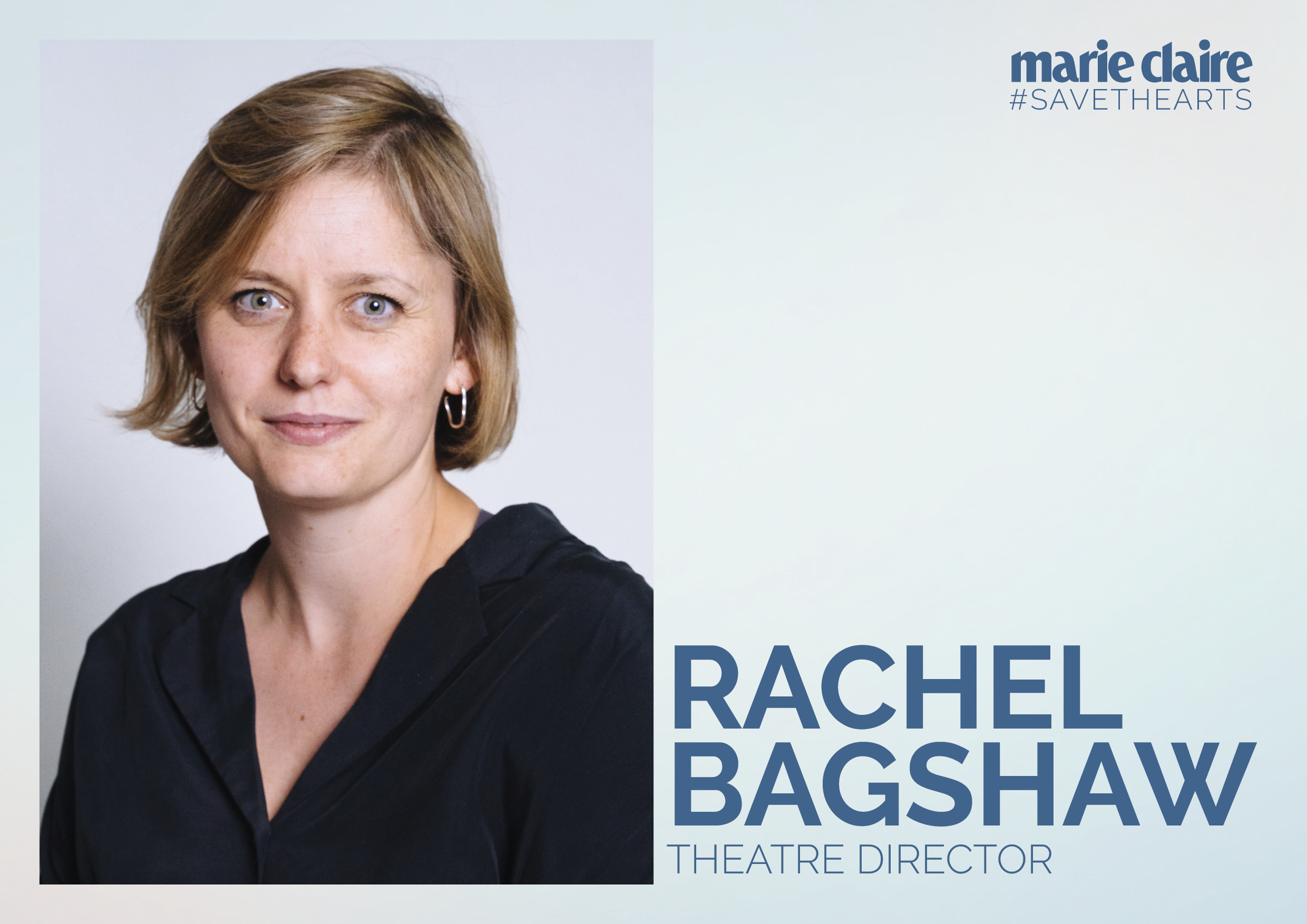
I think increasingly, disabled people have felt quite forgotten about, and I think people who are shielding have particularly felt a bit out of sight, out of mind. I'm lucky enough that I'm not shielding, so I can sit in a theatre building, but lots of people are not able to work in person. To be able to survive this financially, you need to have income from elsewhere, you need to have really solid relationships – and these are things that are just going to really impact on disabled artists.
But streaming has opened doors to access for the first time. With things like the National Theatre at home, people are starting to think about sharing their work. Whereas pre-pandemic, people just didn't consider that disabled people might not be able to come to the theatre because they're not well enough to leave their homes.
There’s real joy in finding new ways of telling stories in this period. I think we're all experimenting with how we speak to audiences and connect to audiences in ways that we haven't explored prior to the pandemic. I've made a show with the Royal Court (Invisible Summer) that is going out as a series of emails. It's a really beautiful piece of work and it's sort of a little something to your inbox everyday over a couple of weeks as the story unfolds.
Theatre and the arts offers young people views into the world they might not have otherwise come across, or views that confirm or support feelings about the world that they didn't know they had. Telling stories and being told stories – that exchange is ancient. One of the main differences between us and other creatures is that we have an ability to tell stories to each other. [Young people] aren't able to go on school trips to the theatre at the moment, so we're having to think really creatively about how we get those stories into schools and into people's homes; how we get young people to connect with stories, performances and plays in other ways.
* Get involved with our Save The Arts campaign this week via our social media platforms @marieclaireuk #savethearts
Maria Coole is a contributing editor on Marie Claire.
Hello Marie Claire readers – you have reached your daily destination. I really hope you’re enjoying our reads and I'm very interested to know what you shared, liked and didn’t like (gah, it happens) by emailing me at: maria.coole@freelance.ti-media.com
But if you fancy finding out who you’re venting to then let me tell you I’m the one on the team that remembers the Spice Girls the first time round. I confidently predicted they’d be a one-hit wonder in the pages of Bliss magazine where I was deputy editor through the second half of the 90s. Having soundly killed any career ambitions in music journalism I’ve managed to keep myself in glow-boosting moisturisers and theatre tickets with a centuries-spanning career in journalism.
Yes, predating t’internet, when 'I’ll fax you' was grunted down a phone with a cord attached to it; when Glastonbury was still accessible by casually going under or over a flimsy fence; when gatecrashing a Foo Fighters aftershow party was easy-peasy-lemon-squeezy and tapping Dave Grohl on the shoulder was... oh sorry I like to ramble.
Originally born and bred in that there Welsh seaside town kindly given a new lease of life by Gavin & Stacey, I started out as a junior writer for the Girl Guides and eventually earned enough Brownie points to move on and have a blast as deputy editor of Bliss, New Woman and editor of People newspaper magazine. I was on the launch team of Look in 2007 - where I stuck around as deputy editor and acting editor for almost ten years - shaping a magazine and website at the forefront of body positivity, mental wellbeing and empowering features. More recently, I’ve been Closer executive editor, assistant editor at the Financial Times’s How To Spend It (yes thanks, no probs with that life skill) and now I’m making my inner fangirl’s dream come true by working on this agenda-setting brand, the one that inspired me to become a journalist when Marie Claire launched back in 1988.
I’m a theatre addict, lover of Marvel franchises, most hard cheeses, all types of trees, half-price Itsu, cats, Dr Who, cherry tomatoes, Curly-Wurly, cats, blueberries, cats, boiled eggs, cats, maxi dresses, cats, Adidas shelltops, cats and their kittens. I’ve never knowingly operated any household white goods and once served Ripples as a main course. And finally, always remember what the late great Nora Ephron said, ‘Everything is copy.’
-
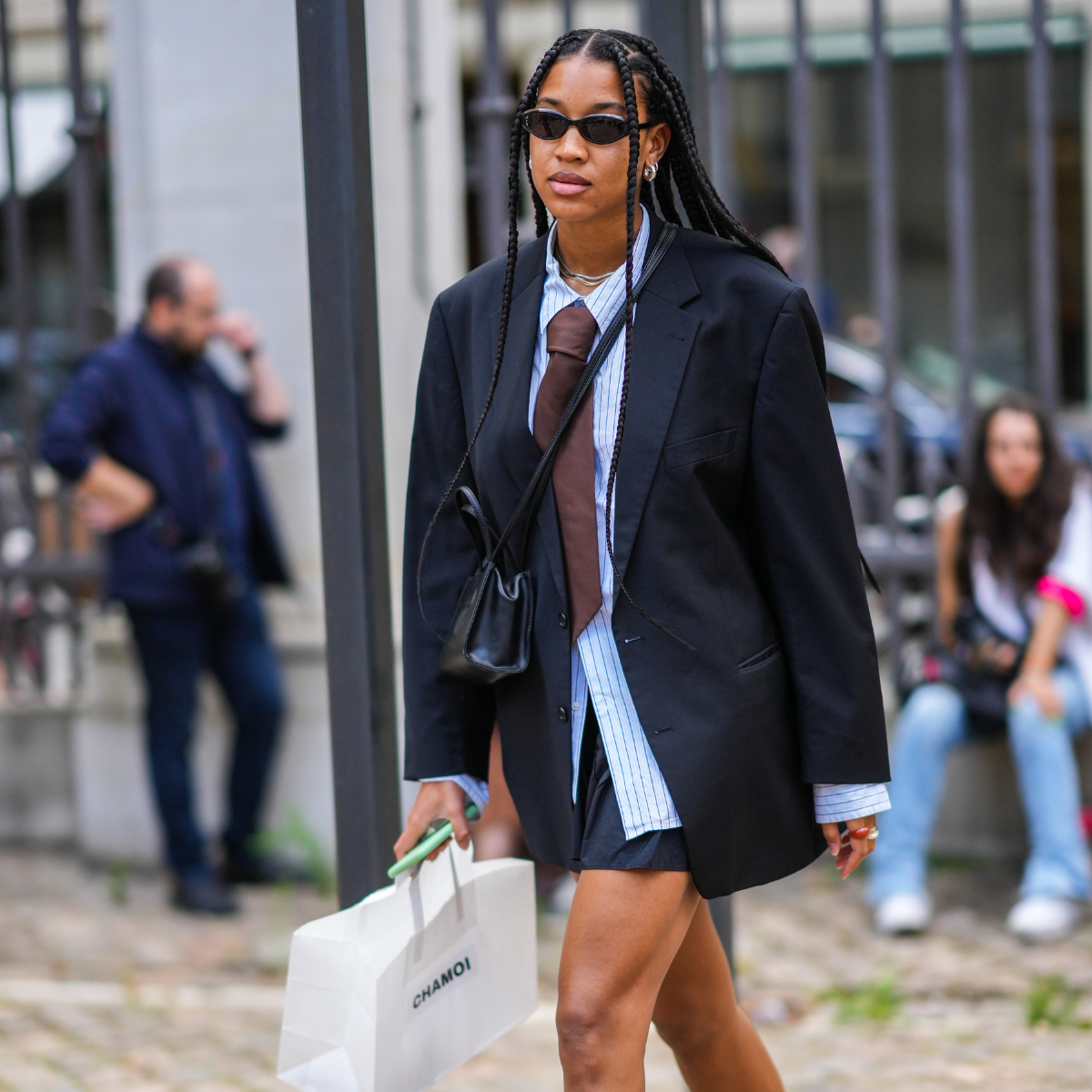 Ties are the unexpected cool-girl accessory to invest in this season
Ties are the unexpected cool-girl accessory to invest in this seasonSchool is in session
By Sofia Piza
-
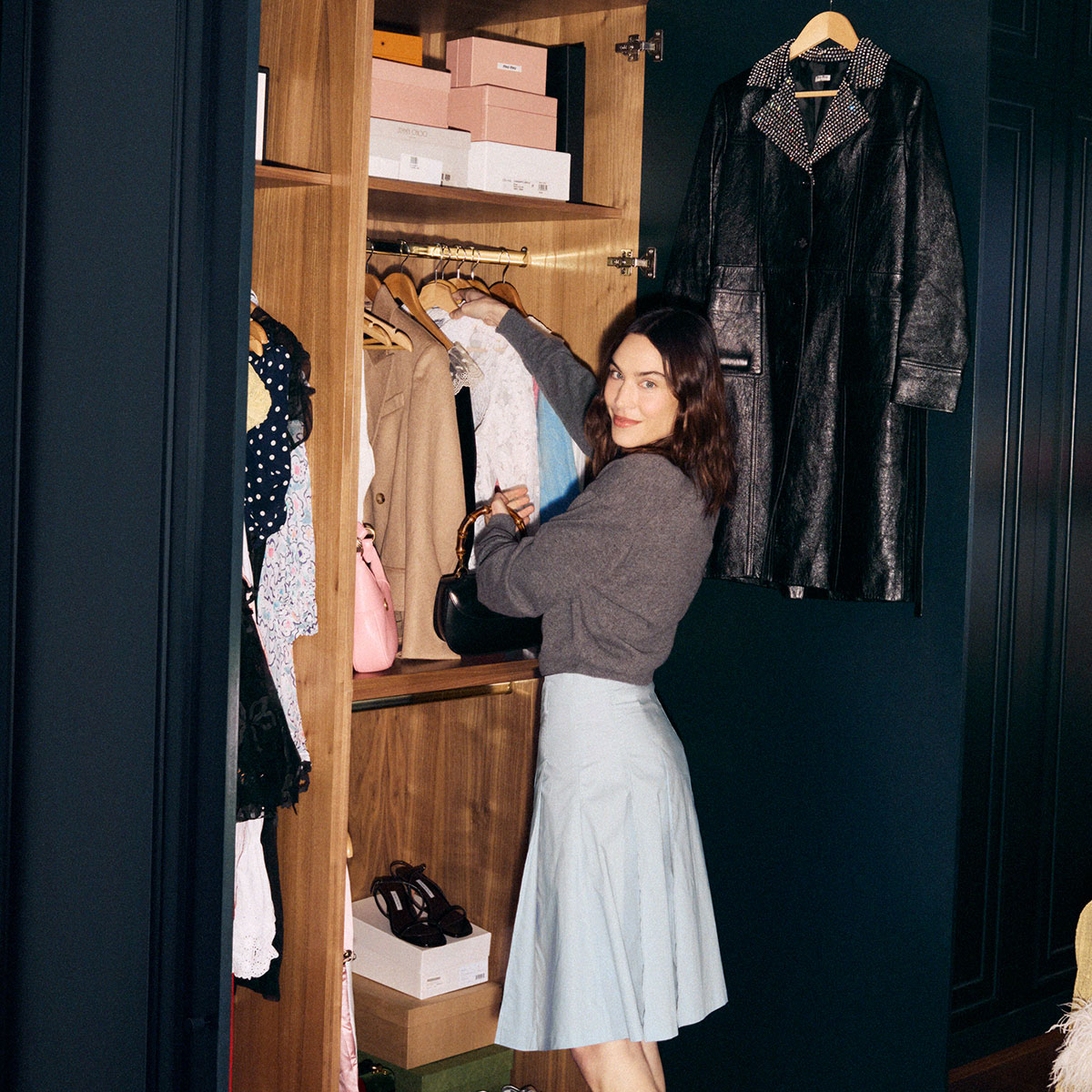 This is not a drill: you can now shop Alexa Chung's actual wardrobe on Vinted
This is not a drill: you can now shop Alexa Chung's actual wardrobe on VintedOwn a piece of sartorial history
By Penny Goldstone
-
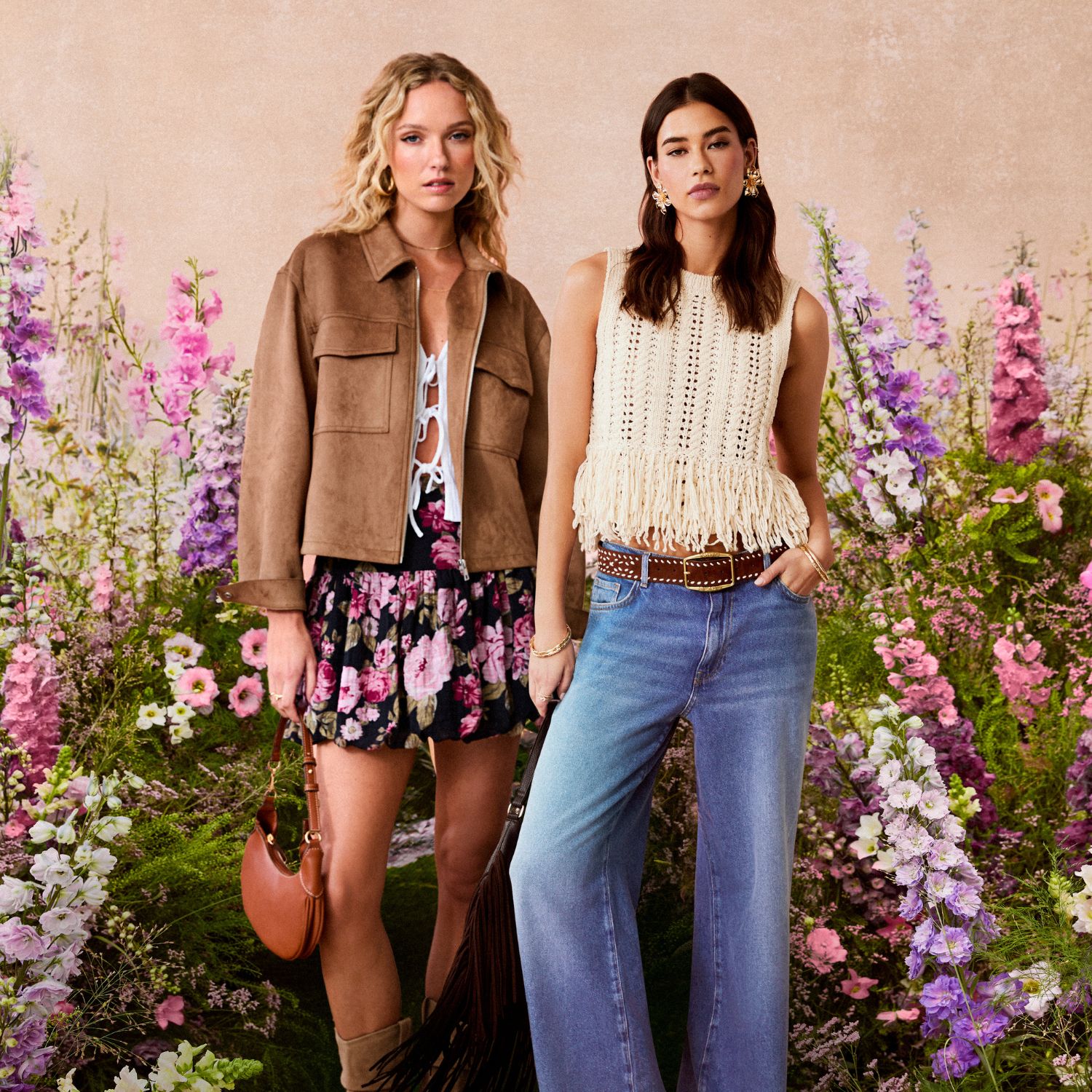 New Look’s spring collection has dropped—as a picky fashion editor, I’m seriously impressed
New Look’s spring collection has dropped—as a picky fashion editor, I’m seriously impressedSpring trends at affordable prices
By Jazzria Harris